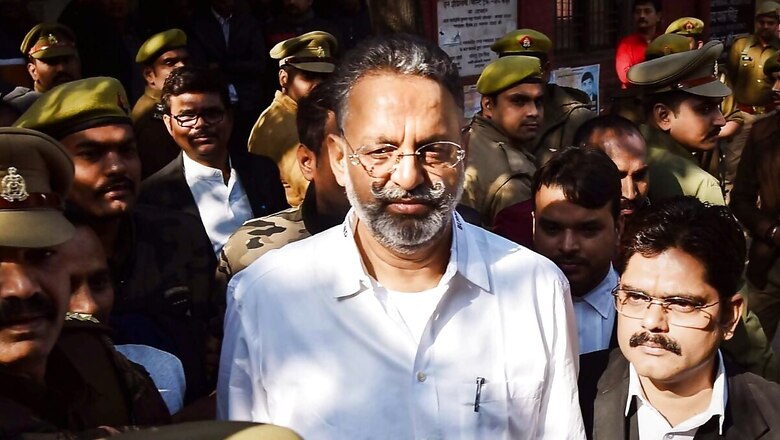
views
Pardon the lack of objectivity. But it speaks volumes about the moral bankruptcy of some if a murderous, entitled convicted gangster-politician’s death has become a rallying point for their politics.
No sooner had Mukhtar Ansari died of a cardiac arrest that parties opposed to the BJP in Uttar Pradesh were falling over each other to pay credence to an unsubstantiated claim that Ansari was poisoned by the Yogi Adityanath government.
The Opposition could have at least paused to note that the wild claims were originally made by the gangster’s family — almost all of whom are history sheeters. Wasn’t the conflict of interest apparent to the Opposition? Or did political expediency impel (Ansari had immense political influence on Muslims voters in Uttar Pradesh) the Opposition to glorify him in death?
Indeed, at least one leading state-based party referred to him as a martyr — a convenient posthumous bequeathment designed to consolidate its traditional vote base. Expediency, of course, may be only one reason; loyalty could be the other. It’s no secret that Ansari has enjoyed political patronage, which meant he was beyond the reach of the long arm of the law for most of his life. Which is why even though the first criminal case was registered against him at the age of 17, and the first murder case was registered against him when he was 25, Ansari was only convicted when he turned 61.
In the interim, he committed 60 serious crimes that included 16 murders.
For four decades, Ansari reigned supreme as terrorist-in-chief so cossetted by obliging politicians — especially those almost always inimical to the BJP — that even when an honest policeman dared to prosecute him, the officer in question ended up in jail.
Ansari’s political benefactors stood solidly behind him even when he was eventually convicted.
Here’s an illustration. Ansari was lodged in Punjab’s Ropar Jail under the Congress government till April 2021.
This two-year jail stint sparked a controversy. When the Congress lost the elections to the Aam Aadmi Party in Punjab, the latter ordered the recovery of Rs 55 lakh from the erstwhile Congress government to pay the bills of a senior lawyer called Dushyant Dave.
Dave was engaged by the Congress government to make out a legal case to ensure Ansari would remain in Ropar jail even though his crimes were committed in Uttar Pradesh. Ansari knew that life in prison would be a lot tougher under the BJP’s Yogi Adityanath government. Creature comforts for one would be denied.
Were the “I-owe-yous’’ that tied Ansari to his political benefactors so implicit that it was impossible to cut the apron strings?
There’s no denying that due process is the hallmark of a rule-based society. And it is the Opposition’s duty to ask questions if any action undermines the law — especially if there is the possibility of a custodial killing. But the question one asks is often as important as the answer. This is particularly so at election time because, as is often said, the person who asks the question gets to control the conversation. Should the Opposition be echoing innuendo in the guise of a question to mislead voters and reap electoral rewards? Ultimately, politics is about optics. No matter how good the argument is, the world will always judge the intention behind it.
Views expressed in the above piece are personal and solely those of the author. They do not necessarily reflect News18’s views.


















Comments
0 comment